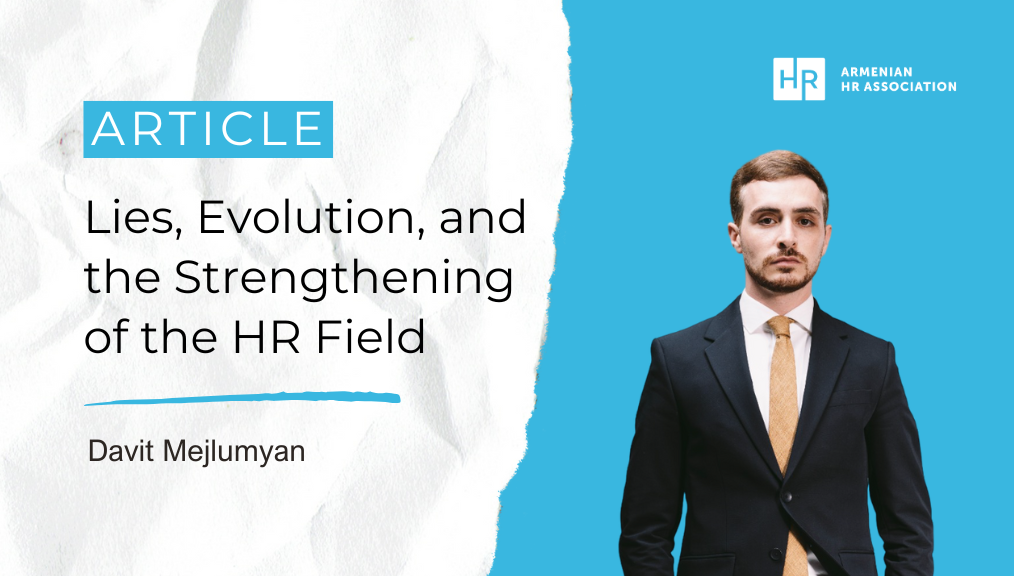- November 14, 2024
- Posted by: Admin HRCommunity
- Category: Blog


Homo sapiens is a social mammal. Natural selection, coming from the first living cell containing DNA to the upright, rational human, has shaped a behavioral model upon which we all depend. Throughout this behavior, a significant characteristic—sociality—runs like a red thread.
Humans are social beings in every sense of the word. As distinctly social creatures, we have formed hierarchical groups, created norms for interaction within those groups (often unwritten), and developed tendencies for intra- and intergroup competition.
The consequences of competition have followed us throughout history. History books are full of examples of intra- and intergroup rivalry. Betrayal, loyalty, lying, trust, alliances, persecution, and war—these behaviors would not exist without competition.
Speaking of lies, Robert Trivers, in his book The Folly of Fools: The Logic of Deceit and Self-Deception in Human Life, suggests that the development of the brain and intelligence was greatly driven by the need to lie and detect lies. First, one must remember where and to whom they lied, and later understand who lies, why, and when. Before, in small groups people often used ambiguous or distorted communication to create a positive impression of themselves to secure more resources or a desirable partner. Later, as groups grew to millions, the scale of lying expanded. Now, people lie not only to impress a partner or appeal to an employer but also to craft a desirable image on social media or justify wars. The need to remember and uncover lies has developed human intellect over hundreds of thousands of years. Nowadays, lying, though perhaps an unfair form of competition, is an accepted way to solve immediate issues, though it creates new problems in the long run.
The next level beyond lying is fiction. Fiction is often created to help organize the cooperation of large numbers of people within a system. Laws, religions, rights, and traditions are all fictions. In Sapiens, Yuval Noah Harari argues that people create and believe in such fabrications to enable the establishment of large networks of cooperation. I would add that it also helps people set aside their natural competitive impulses, allowing them to unite and work for common interests.
In a globalized, information-driven world, the role of such fictions has not changed, yet they no longer hold their former unquestioned authority. With the spread and accessibility of information, a global challenge arises in the economy: to unite people in a corporate environment and provide them with effective foundations for cooperation. Egyptian slaves worked tirelessly for their pharaoh, who was considered equal to the gods. Today, it is nearly impossible to convince people that a company leader or a country’s president is sent by God. A hungry and illiterate person could be easily convinced to believe in any fiction. Today, it is harder to unite or govern people—they are well-fed and have iPhones.
Capitalist ideology suggests that the control of economy should not be centralized in the hands of a few but should belong to society. This dogmatic idea has led to rights such as property, freedom, choice, and others. With the expansion of networks and the democratization of the economic life, the need has arisen to organize people’s work within corporations not only through regulations but also through relationships.
It is not enough to simply set duties and demand that people fulfill them. People cannot work just for the sake of working. They lose enthusiasm, interest wanes, and the sense of happiness diminishes. All these issues provide fertile ground for the gradual formation of corporate culture and the human resources management field. This is further fueled by the fact that people easily find reasons not to like, trust, or even deceive each other.
Not to forget that lying has played an important role in human development. Thus, we can’t simply qualify it as something bad and get rid of the problem.
To address this, every organization creates its own internal culture (a fiction) that turns the workplace from a mere “place of work” into a large “family,” “state,” or “team.” The larger the team, the more resources are needed to manage this fiction. Cultural demands require the hiring process to go beyond just hard skills and include a complex system to identify human qualities and soft skills. This system relies on asking the right questions, right sequence, and professional analysis of the data received. To make sure a new team member fits into the internal cultural environment, the specialist must uncover the hidden qualities not typically mentioned on a CV. For this complex process, traditional HR duties are no longer sufficient. The HR professional must also be a psychologist, sociologist, marketer, and manager, skilled in asking questions like a journalist. Add to this the number of organizations opening every day, emigration, the exponential rise in remote work roles, and the resulting talent shortage, which collectively strengthens the role of HR in the economy.
Today, it is impossible to imagine a large organization without an HR specialist. It’s hard to say who and when first established HR as a profession, but its origins and roots are clear to me. While people share a common environment, they are also highly diverse. Problems arise even in small businesses with 10 people, let alone in teams of 500 or more. Among people driven by competition, each has their own specific interests and goals, which are often incompatible. However, as marketers say, demand creates supply, and there will always be an experienced HR professional who can uncover the formula to unite the interests of employees and the organization.
Article author: Davit Mejlumyan
